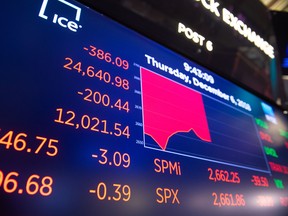
Understanding 2024’s Venture Capital Landscape: Key Trends and Developments
Venture capital (VC) activity in 2024 has shown significant shifts in behavior, focus areas, and outcomes. Below is a breakdown of the key trends, fundraising behaviors, and developments that have shaped this year’s VC landscape.
Market Trends
Venture capitalists raised slightly below expectations in 2024, with many focusing on high-quality opportunities rather than sheer volume. This has led to a more selective environment where deals are prioritized based on their long-term potential and strategic alignment with fund objectives.
Key Observations:
- Many VCs have leaned into the "spray-and-pray" investment approach less frequently, opting instead for targeted investments in companies with clear execution paths.
- There has been a noticeable shift toward enterprise software and SaaS applications, with fewer allocations to consumer-facing startups. This reflects changing market dynamics and investor risk appetites.
VC Fundraising Behavior
The 2024 fundraising cycle saw VCs raising less than usual, driven by a cautious environment. However, the quality of deals has remained high, with many funds prioritizing companies that can deliver sustained returns or have demonstrated strong governance frameworks.
Notable Patterns:
- Enterprise SaaS startups accounted for a larger share of investments, as these companies are better positioned to weather economic headwinds.
- Seed-stage allocations remain constrained due to the rough performance of earlier years’ vintage funds. However, some funds are beginning to recover in later stages (e.g., Series A and beyond).
AI & Enterprise: The New Frontier
Artificial intelligence (AI) continues to reshape the VC landscape, with a growing focus on its applications within enterprise environments. While consumer-facing AI innovations remain dormant due to regulatory constraints, companies are increasingly investing in enterprise solutions that leverage AI for efficiency gains.
Key Developments:
- Shift from Consumer to Enterprise Focus: AI-driven tools tailored for businesses (e.g., HR management, supply chain optimization) have gained significant traction. These applications are not only cost-effective but also scalable, aligning well with the preferences of many VCs.
- The enterprise SaaS space remains a prime target for VCs, as these companies often have predictable growth trajectories and strong cash burn rates.
Company Closures: A Cautionary Tale
The 2024 VC landscape has seen an unprecedented wave of closures among unicorns (single-stage exits) in the tech sector. This reflects heightened scrutiny from investors and regulators on companies that achieve rapid valuations.
Contributing Factors:
- Many unicorns are struggling to maintain their growth trajectories, often due to aggressive expansion at the expense of profitability.
- The regulatory landscape continues to evolve, with increasing pressure on publicly traded companies to ensure transparency and fairness in capital raisings.
Unexpected Developments
While 2024 has been defined by cautious optimism and strategic shifts, there are also signs of potential disruptions that could reshape the VC landscape in coming years. These include:
Climate-Related Events: A Shifting Tide
Climate change is increasingly viewed as a catalyst for innovation rather than a hindrance. Potential disruptions such as extreme weather events or resource scarcity could drive demand for new technologies, creating opportunities for early-stage companies.
Geopolitical Shocks: Beyond the Flashpointer
While geopolitical tensions remain a factor in market dynamics, 2024 has also seen growing recognition of the broader risks posed by global instability. For instance, natural disasters (e.g., hurricanes) or geopolitical conflicts could potentially drive sudden shifts in funding priorities.
Conclusion
venturing in 2024 reflects both resilience and caution, with VCs prioritizing high-quality, scalable opportunities in enterprise AI and SaaS applications. However, the evolving regulatory environment, climate risks, and geopolitical uncertainties suggest that the VC landscape will remain dynamic in 2025.














